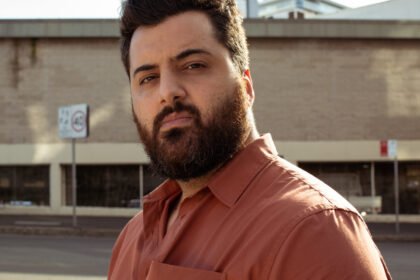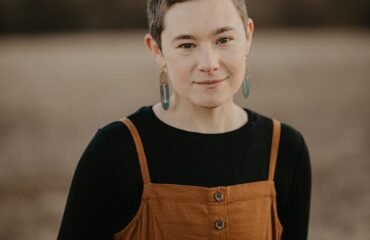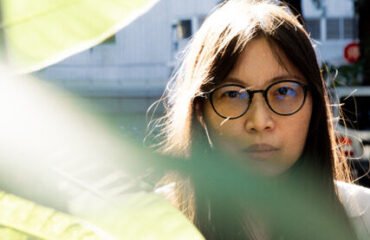THREE POEMS by Omar Sakr

Words in the genocide
There are no words for this, we repeat.
I think about this instead of the dead.
The brain matter. The reddened kids.
There have never been more words.
In English, and Arabic: a thousand
novels, a hundred thousand poems,
decades of song, laws days-long,
a thesis stack that can reach the sun.
What if I told you the reader is moved
not at all? The listener laughs, draped
in a mangled woman’s wedding dress.
No doubt the Times would edit her out—
the original woman, the marriage, the flesh.
Murderers wear their victim’s clothes
in desecrated homes, grinning.
I can’t think of a better description
for Zionism. Killing my love of drag
is the least of its crimes. I think
about the seamstresses, and tailors.
The careful measurements.
Months of labor, the elegance
of knuckles, an art meant to be
recorded from every angle to stun
even the future. How they worked
their whole lives to be in the picture.
How we work just as hard not to be.
Like the times, I edit us out of frame.
Park in the genocide
Any dark man with a beard
Could be me I have learned
From my son’s urgent delight,
How he rushes to love them.
Dear fathers afraid to smile
Do you know he is yours, too?
He doesn’t know you
Could be a danger and I
Fear to teach him where joy
Must be tempered. As a boy
I ran from everyone, everywhere,
With good reason. What reason
Holds you at bay, dear fathers?
Is it a memory or a fear,
Is it yours or was it given—
Is there a difference, Baba?
I look around at the sum of us
And count all the flinches.
Protest in the genocide
How will I get you, my loneliest eye, to love
Another? Oh, let me define it for you then,
The precise process of divine arrival—
It’s not so much a fall as an expulsion
Out of self, into the ache of world
Where even a breath can flay
Your spirit, yet still you inhale
To know the air between us,
How much more alive we can be
When we breathe together. Love is both
The path toward devastation, and the means
By which we survive it. What are you
Waiting for? Leap! You are alone in yourself!
Leap! There is more to this life! Even to death—
Yes, leap! For your husband and your wife
For your friend and your child, for the river
And the sea, for the stranger you can’t see
And the day you might not meet—leap!


